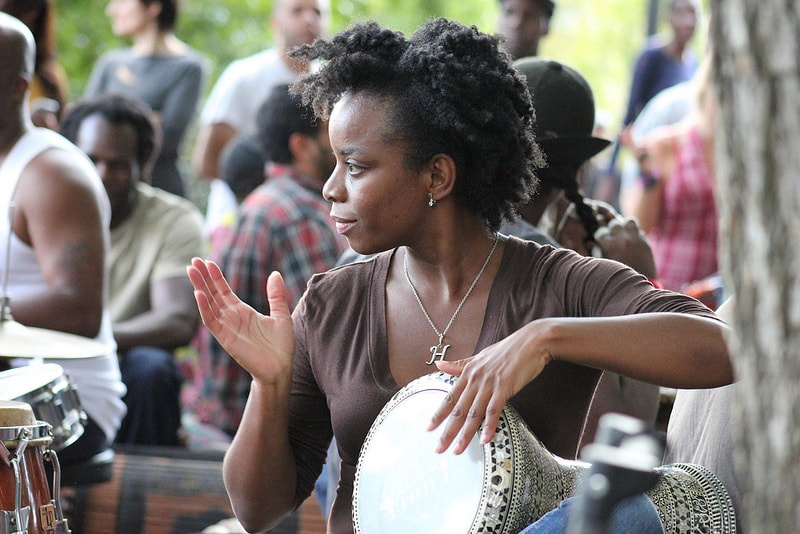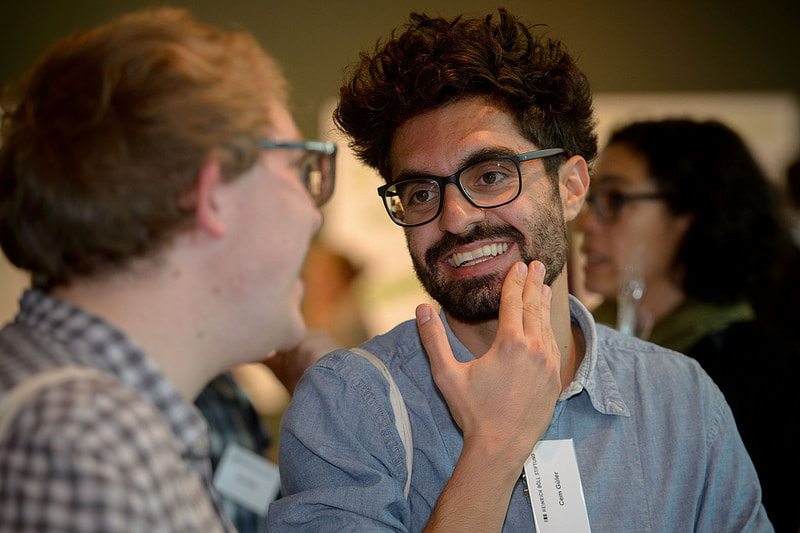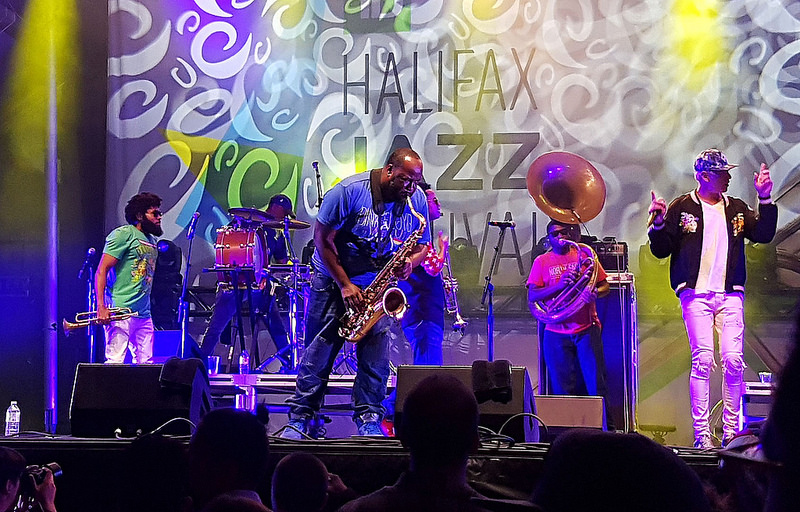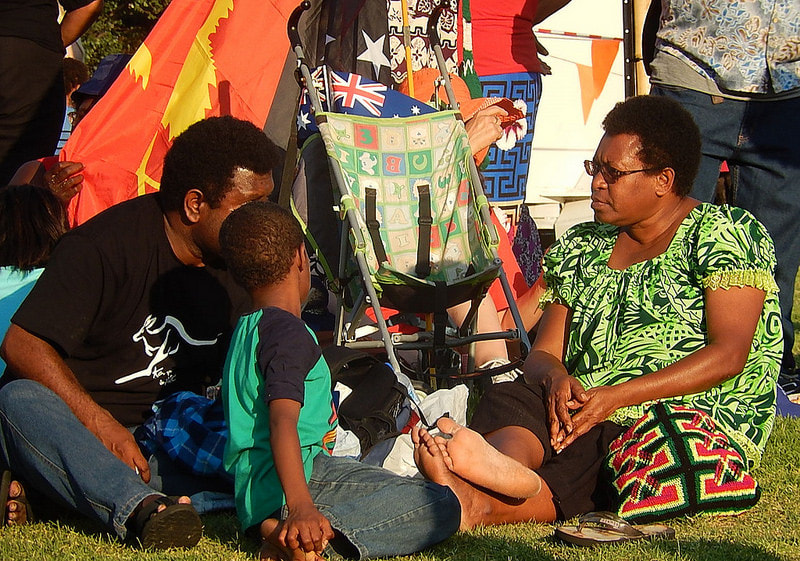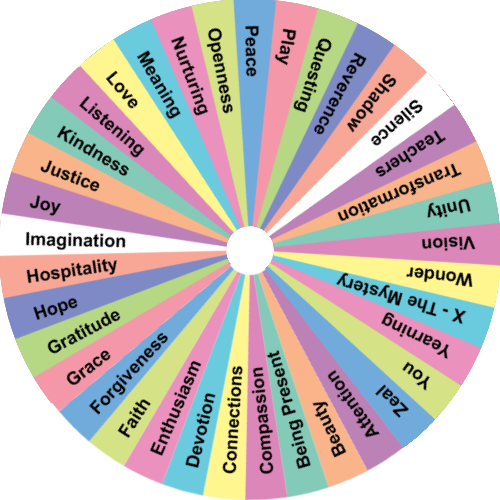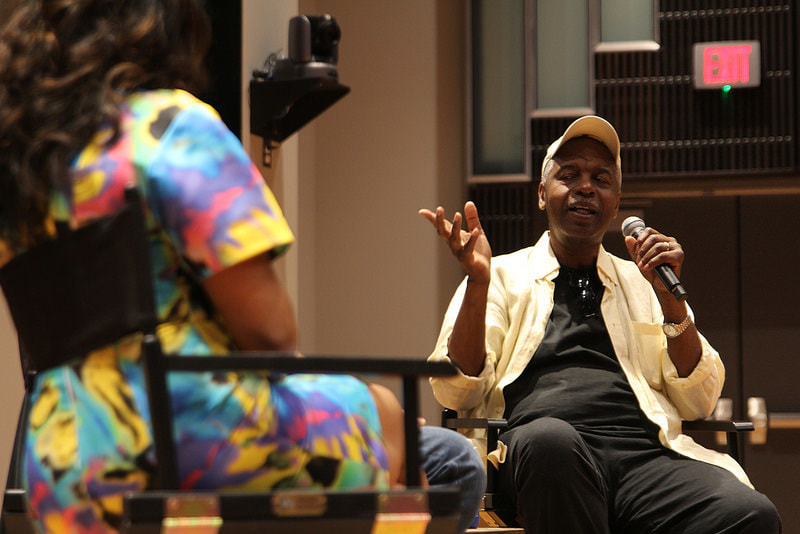Virtuous Conversations
 Ellis Hall: Home of the Hendrix Steel Center and the Departments of Philosophy and Religion
Ellis Hall: Home of the Hendrix Steel Center and the Departments of Philosophy and Religion
A friend recently said to me: "I can't meditate or pray very well, but I can enjoy a good conversation." She and I had just come from a discussion on the arts of the 'virtuous conversation' sponsored by the Hendrix Steel Center. It occurred to me that 'virtuous conversation' might itself be a form of meditation: a spiritual practice in its own right. It is not spiritual in the sense that it links a person with a higher power, although it may do this. It is spiritual because it facilitates inter-being and mutual empowerment. People feel more connected, and more whole, at least momentarily, amid a good conversation, philosophical or otherwise. Such a conversation can be, but need not be, about big ideas or the affairs of the world. It can simply be an act of sharing, of storytelling. It can include humor and triviality. Still, it is a moment of connection and those moments are themselves openings to what Buddhists call inter-being and process theologians call mutual becoming. If we are interested in a better world or a more meaningful life, enjoying a good conversation -- a virtuous one -- may be one of the best practices we have. (Jay McDaniel)
What makes a conversation virtuous?
Recently Dr. James Dow of Hendrix College led me and others in a conversation about "virtuous" conversations. There were about twenty of us a small library where we had the discussion: some students, some faculty, and a few from the local community. I appreciated the topic chosen for our conversation, and by the end of it I had a sense of what, for me, makes a conversation "virtuous." A conversation is virtuous (1) if it is mutually empowering; (2) if the parties in the conversation feel listened to and respected; (3) if the conversation has a living quality, a affective vitality, of its own, such that it is inherently energizing; and (4) if the participants feel more connected than they might otherwise feel. I am sure that others in the room had other ideas, which means that the conversation can spur further conversations. Many of the most virtuous conversations are open-ended and autopoieic: capable of generating new conversations.
A virtuous conversation can be, but need not be, truth-seeking.
As we were having the conversation, some discussants seemed to assume that virtuous conversations have as their aim "understanding" or the "approximation of some kind truth." They were, after all, philosophers. I'm on board. I love a good reflective conversation in which people seek truth together, sometimes dialectically (exchanging alternative points of view) and sometimes exploratory (simply taking a topic and seeking understanding together).
However, for me, while truth-seeking is a worthy aim, it is not necessary for a conversation to be virtuous. The purpose may also be simply to enjoy the process of conversing itself. Playful conversations full of humor without having intellectual ends in mind are, for me, conversations. And so are story-telling conversations in which the point is simply to enjoy the story. A concern for "understanding" or "truth" can be part of a conversation, but ultimately, to paraphrase Whitehead, it is more important that conversations be interesting (life-enhancing) than that they be true. Conversations are in service to the fullness of life, not the other way around.
Conversations can be verbal, but they can also musical (visual, gestural, and silent)
As I was considering these matters, I realize that most of the people in the room with me were thinking of verbal conversations, but for my part I was also thinking of musical conversations, such as occur in improvisational jazz. And I was thinking about how the voices in jazz conversations need not be human voices; they can instead be trumpets, saxophones, guitars, and drums. If ideas are communicated, they are "musical" ideas. I was also thinking about how, every Monday night, I participate in a silent conversation among people who sit in quiet meditation, Zen style, and say nothing, but are nevertheless communicating with one another through our silence. In the spirit of Whitehead, I want to stretch the word "conversation" beyond the verbal.
Listening to a conversation is a form of participation
With regard to music, I was also thinking about how I enjoy listening to musical conversations even if I am not among the participants in a more active way. I say "more active way" because, in fact, my own listening and appreciation is a form of participating, albeit not entirely visible to outsiders. When I listen to the performances by The Roots and Bilal, or by the West African Drummers, or by Daniil Trifonov, I am participating in my way, without their knowing it. Their conversations are part of me, and I am conversing with them even as they don't know me.
Virtuous conversations can be with the more-than-human world and humanly-made instruments.
We can have conversations with the more-than-human world: animals, plants, landscapes, and musical instruments. They may or may not respond in ways we understand, and they may or may not be aware of us. This means that they may not satisfy the "four conditions" identified, above. But this does not make the conversation incomplete. It just makes it different. In the house of virtuous conversations, there are many rooms. Some of the most important conversations we can have with the more-than-human world are simply to listen, with respect and empathy (a capacity for feeling their energies). These conversations can be facilitated by humble work in the sciences, by the arts, and by direct experiences in the field. The listening occurs through seeing, touching, hearing, and having the capacity to let them "be themselves" without our interference.
-- Jay McDaniel (9/1/2018)
Recently Dr. James Dow of Hendrix College led me and others in a conversation about "virtuous" conversations. There were about twenty of us a small library where we had the discussion: some students, some faculty, and a few from the local community. I appreciated the topic chosen for our conversation, and by the end of it I had a sense of what, for me, makes a conversation "virtuous." A conversation is virtuous (1) if it is mutually empowering; (2) if the parties in the conversation feel listened to and respected; (3) if the conversation has a living quality, a affective vitality, of its own, such that it is inherently energizing; and (4) if the participants feel more connected than they might otherwise feel. I am sure that others in the room had other ideas, which means that the conversation can spur further conversations. Many of the most virtuous conversations are open-ended and autopoieic: capable of generating new conversations.
A virtuous conversation can be, but need not be, truth-seeking.
As we were having the conversation, some discussants seemed to assume that virtuous conversations have as their aim "understanding" or the "approximation of some kind truth." They were, after all, philosophers. I'm on board. I love a good reflective conversation in which people seek truth together, sometimes dialectically (exchanging alternative points of view) and sometimes exploratory (simply taking a topic and seeking understanding together).
However, for me, while truth-seeking is a worthy aim, it is not necessary for a conversation to be virtuous. The purpose may also be simply to enjoy the process of conversing itself. Playful conversations full of humor without having intellectual ends in mind are, for me, conversations. And so are story-telling conversations in which the point is simply to enjoy the story. A concern for "understanding" or "truth" can be part of a conversation, but ultimately, to paraphrase Whitehead, it is more important that conversations be interesting (life-enhancing) than that they be true. Conversations are in service to the fullness of life, not the other way around.
Conversations can be verbal, but they can also musical (visual, gestural, and silent)
As I was considering these matters, I realize that most of the people in the room with me were thinking of verbal conversations, but for my part I was also thinking of musical conversations, such as occur in improvisational jazz. And I was thinking about how the voices in jazz conversations need not be human voices; they can instead be trumpets, saxophones, guitars, and drums. If ideas are communicated, they are "musical" ideas. I was also thinking about how, every Monday night, I participate in a silent conversation among people who sit in quiet meditation, Zen style, and say nothing, but are nevertheless communicating with one another through our silence. In the spirit of Whitehead, I want to stretch the word "conversation" beyond the verbal.
Listening to a conversation is a form of participation
With regard to music, I was also thinking about how I enjoy listening to musical conversations even if I am not among the participants in a more active way. I say "more active way" because, in fact, my own listening and appreciation is a form of participating, albeit not entirely visible to outsiders. When I listen to the performances by The Roots and Bilal, or by the West African Drummers, or by Daniil Trifonov, I am participating in my way, without their knowing it. Their conversations are part of me, and I am conversing with them even as they don't know me.
Virtuous conversations can be with the more-than-human world and humanly-made instruments.
We can have conversations with the more-than-human world: animals, plants, landscapes, and musical instruments. They may or may not respond in ways we understand, and they may or may not be aware of us. This means that they may not satisfy the "four conditions" identified, above. But this does not make the conversation incomplete. It just makes it different. In the house of virtuous conversations, there are many rooms. Some of the most important conversations we can have with the more-than-human world are simply to listen, with respect and empathy (a capacity for feeling their energies). These conversations can be facilitated by humble work in the sciences, by the arts, and by direct experiences in the field. The listening occurs through seeing, touching, hearing, and having the capacity to let them "be themselves" without our interference.
-- Jay McDaniel (9/1/2018)
Virtuous Conversations in Musical Form
|
Listening to The Roots and Bilal
virtuous conversation through drumming
virtuous conversations with whales
|
Listening to drums
virtuous conversation with a piano
virtuous conversations with chimps
|
Virtuous Conversations with and among other Animals
|
|
|


